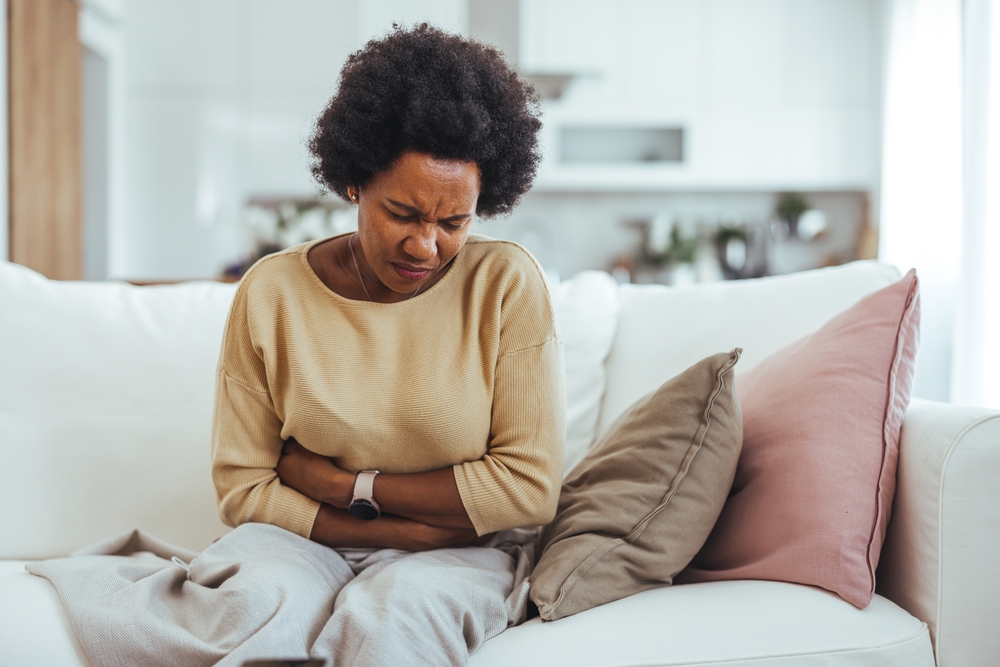Stomach ulcers can be an incredibly painful and distressing condition. While many people experience stomach pain from time to time, understanding the specific symptoms related to ulcers is crucial for proper diagnosis and treatment. Ulcers occur when the lining of the stomach or the first part of the small intestine — the duodenum — is damaged, leading to open sores. Recognizing the signs early can help you seek appropriate care and avoid further complications. Let’s delve into the five key symptoms of stomach pain caused by ulcers, helping you to identify if you might be experiencing this condition.
1. Burning sensation in the abdomen
A burning sensation in the abdomen is often the hallmark symptom of a stomach ulcer. This pain typically occurs between the breastbone and the navel and can vary in intensity. The burning sensation is usually described as a gnawing pain that may worsen at night or between meals when the stomach is empty.
- Ulcers are caused by an imbalance between the digestive fluids in the stomach and the protective mechanisms of the stomach lining. When the stomach acid erodes the lining, it leads to a burning pain. The presence of the bacterium Helicobacter pylori (H. pylori) or the prolonged use of nonsteroidal anti-inflammatory drugs (NSAIDs) are common culprits.
- This burning sensation can be severe, often waking individuals up at night. It can also cause anxiety, as the persistent discomfort may lead one to worry about more severe health issues.
2. Nausea and vomiting
Nausea and vomiting are common symptoms associated with stomach ulcers. These symptoms can be mild or severe and may occur intermittently or consistently. The nausea is often more pronounced when the stomach is empty, and it may be accompanied by a sour taste in the mouth.
- The stomach lining’s erosion can interfere with normal digestion, leading to nausea. In some cases, the ulcer may cause partial obstruction of the stomach, which results in vomiting. This happens when the ulcer leads to swelling or scarring, blocking the passage of food through the digestive tract.
- Recurrent nausea and vomiting can significantly affect one’s quality of life. The fear of eating — due to the anticipation of pain or discomfort — can lead to weight loss and nutritional deficiencies, compounding the emotional and physical toll of the condition.
3. Bloating and feeling of fullness
Many people with stomach ulcers report a persistent feeling of bloating and fullness. This sensation can occur even after consuming a small amount of food or drink. It can lead to discomfort, making it difficult to engage in daily activities.
- Ulcers can affect the stomach’s ability to empty properly, causing a buildup of stomach contents. The irritation and inflammation caused by the ulcer may also contribute to this sensation.
- This symptom can be frustrating and disheartening. The feeling of fullness may lead to a reduced appetite — resulting in unintentional weight loss. For some, it might become a cycle of fear around eating, which can lead to further complications.
4. Indigestion and heartburn
Indigestion — often accompanied by heartburn — is another symptom commonly linked to stomach ulcers. It manifests as a sour or bitter taste in the mouth, a burning sensation in the chest or a general feeling of discomfort in the upper abdomen.
- When the stomach lining is compromised by an ulcer, stomach acid can irritate the esophagus and other parts of the digestive tract, causing indigestion and heartburn. The consumption of spicy foods, caffeine or alcohol can exacerbate these symptoms.
- Indigestion and heartburn can be distressing, especially when they occur frequently. This discomfort can make it challenging to enjoy meals, leading to anxiety about eating in social situations or at family gatherings.
5. Unexplained weight loss
Unintended weight loss is a more severe symptom of stomach ulcers and often indicates that the condition is interfering significantly with normal digestion and nutrient absorption. This symptom might arise due to a combination of factors, including reduced appetite, nausea, vomiting and fear of eating due to anticipated pain.
- When eating becomes associated with pain or discomfort, individuals may consciously or subconsciously avoid food, leading to a decrease in caloric intake. Additionally, the body’s reduced ability to absorb nutrients properly due to the ulcer can contribute to weight loss.
- Sudden and unexplained weight loss can be alarming. It may cause additional stress and anxiety, further complicating the condition. In severe cases, it can lead to a weakened immune system and other health issues, making it crucial to seek medical intervention.
When to seek medical help
If you experience any of these symptoms persistently, it’s essential to consult with a health care professional. Stomach ulcers can lead to severe complications if left untreated — including internal bleeding, perforation and stomach cancer. Early diagnosis and treatment can help manage symptoms effectively and prevent further health issues.
- Diagnostic procedures: A health care provider may recommend tests such as an upper endoscopy, barium swallow or testing for H. pylori to diagnose the ulcer’s presence and cause.
- Treatment options: Treatments for stomach ulcers include antibiotics (if H. pylori is present), proton pump inhibitors, or PPIs, to reduce stomach acid and lifestyle changes, such as avoiding NSAIDs, alcohol and smoking.
Coping with ulcer pain
While medical treatment is essential, there are practical steps you can take to manage and alleviate ulcer symptoms:
- Dietary changes: Avoid foods and drinks that can irritate the stomach lining, such as spicy foods, alcohol, caffeine and acidic foods.
- Stress management: Stress can exacerbate ulcer symptoms, so practicing stress-reducing activities like meditation, yoga or deep breathing exercises can be beneficial.
- Eating habits: Eating smaller, more frequent meals rather than large meals can help minimize the discomfort of a full stomach.
- Avoid smoking: Smoking can increase stomach acid production and slow healing, so it’s advisable to quit smoking if you have a stomach ulcer.
A range of symptoms that affect daily life.
Stomach ulcers can present a range of symptoms that affect daily life — from the burning sensation in the abdomen to unexplained weight loss. Understanding these symptoms is the first step toward seeking appropriate care. Ignoring the signs can lead to more severe complications, so it’s crucial to pay attention to your body and consult a health care professional if you suspect an ulcer. With the right treatment and lifestyle adjustments, it is possible to manage the symptoms effectively and lead a comfortable, healthy life.
This story was created using AI technology.














